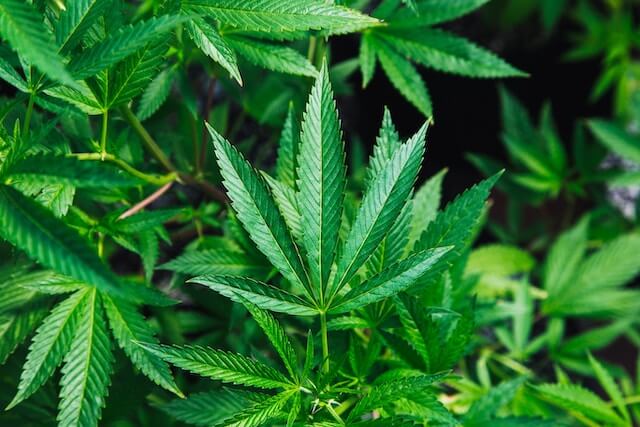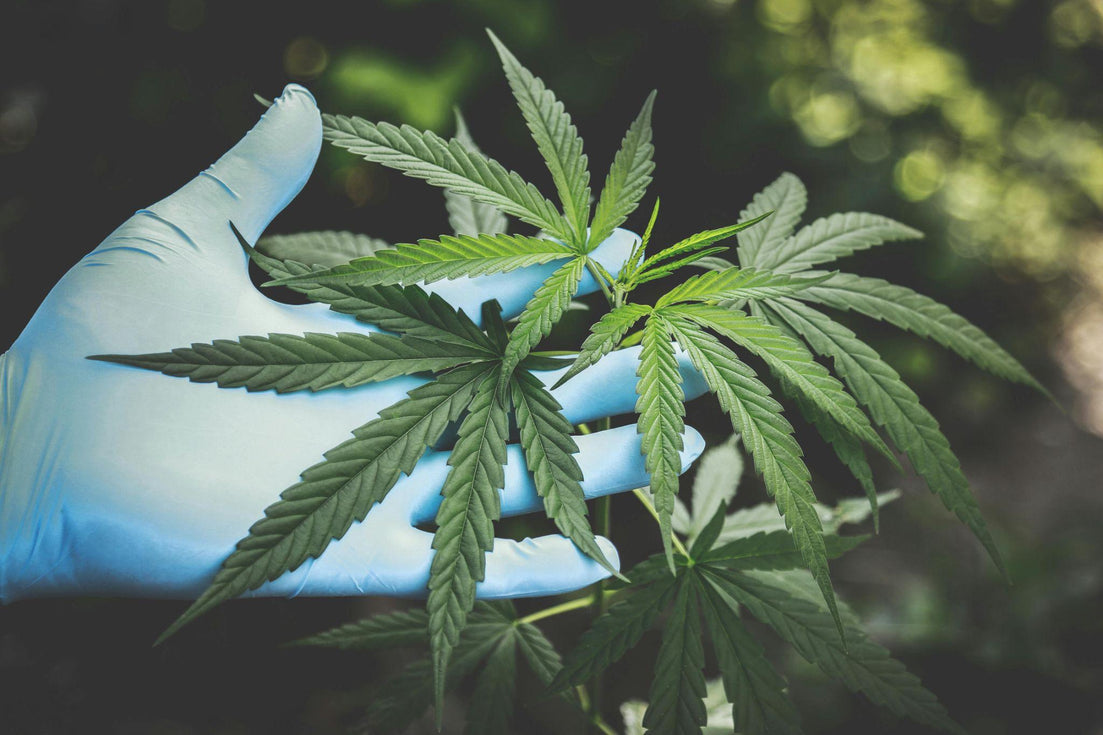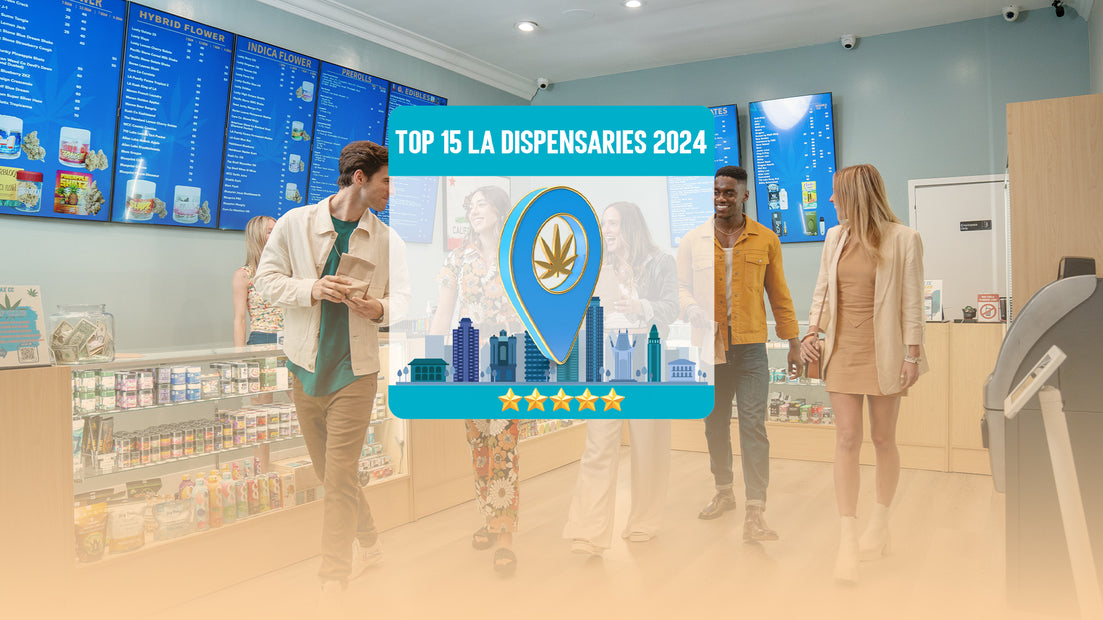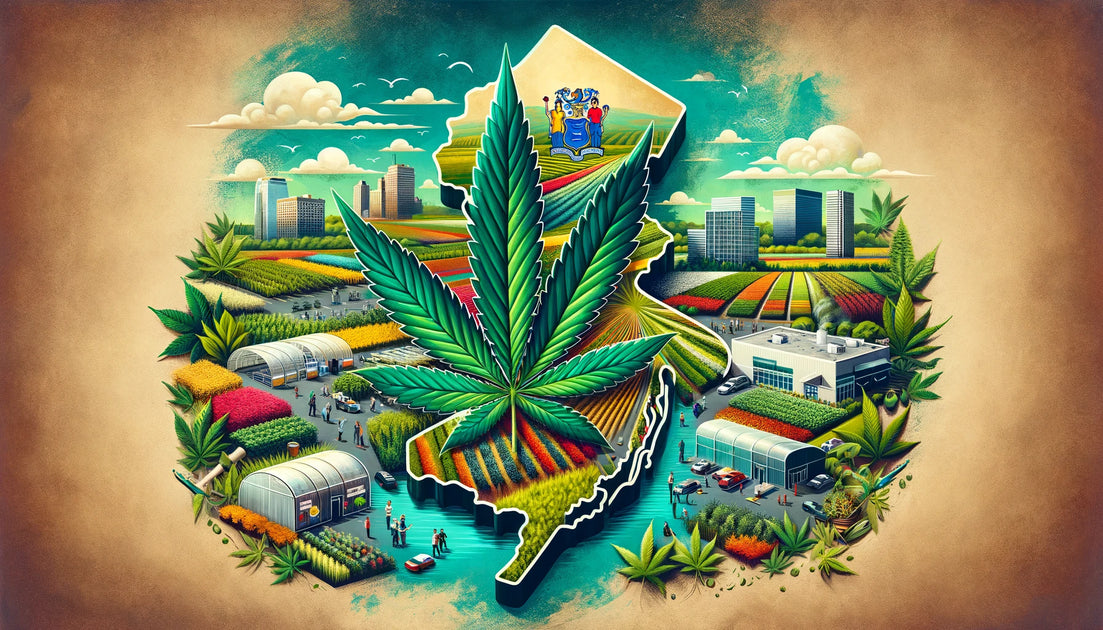Your cart is currently empty.

Ever find yourself gazing at a cannabis product label, perplexed by the abbreviations THC and THCA? You're not alone. These little acronyms pack quite the punch in terms of their impact on our bodies.
The complex world of cannabinoids might seem like an intricate puzzle to some. But here's where we untangle that knot!
In this exploration, you'll dive into the deep end of chemistry with us as we decipher these two compounds - THC and THCA - which originate from the same source but have distinct properties.
You'll uncover how raw cannabis transforms itself into a psychoactive power player or stays non-intoxicating depending on its composition. And that’s just for starters...
Understanding the Chemistry: THC vs THCA
If you've ever wondered about the difference between THC and THCA, you're not alone. THC and THCA have some resemblances, yet they also possess distinct dissimilarities.
Unveiling the Structures of THC and THCA
The structures of these compounds are what make them unique. The chemical structure of each compound originates from raw or freshly-harvested cannabis plants. Fresh cannabis contains tetrahydrocannabinolic acid (THCA) while delta-9-tetrahydrocannabinol (THC), the compound responsible for marijuana's psychoactive effects, is formed when the plant dries out or is heated.
In essence, both THC and THCA share similar molecular structures - their main distinction lies within an additional carboxyl group present in THCA. This group gets shed off during decarboxylation to transform into its potent counterpart - THC.
Research shows this process can be sped up by exposure to heat – which explains why smoking or baking marijuana activates its psychoactive effects. The change happens because heat causes a reaction that removes a carbon molecule from raw cannabis.
This reaction isn't just for show; it has significant implications for how we use and understand these substances. For example, when you smoke or vaporize dried flower buds containing inactive tetrahydrocannabinolic acid (THCA), it turns into active Delta 9 Tetrahydrocannabinol (D9-THC).
Key Stats
A study published in the journal "Cannabis and Cannabinoid Research" indicates that almost all THCA can be transformed to THC through decarboxylation. This finding highlights just how potent raw cannabis can become when properly heated.
To gain a comprehensive knowledge of these substances, let's delve further into their distinctive features.
The Transformation from THCA to THC
THCA, or tetrahydrocannabinolic acid, is the precursor of THC that's present in uncured cannabis. Applying heat initiates a decarboxylation process, which is the removal of an extra carboxyl group from THCA and its conversion to THC. This fancy word simply means that the additional carboxyl group present in THCA gets removed due to heat exposure.
This transformational journey from THCA into THC can happen when smoking or vaporizing cannabis and even during baking edibles. But did you know there are other ways this conversion happens too? Let's take a look at two key processes: gas chromatography and liquid chromatography.
Gas Chromatography: A Heat-Based Conversion
Gas chromatography (GC), often used by scientists for testing cannabinoid profiles, triggers the same decarboxylation process but with an analytical twist. The high-temperature environment not only converts THCA into THC but also provides crucial data about its composition.
In fact, GC is so effective that it’s often tricky distinguishing between naturally occurring THC versus what was originally THCA before heating. As fascinating as this method might be though - remember kids; don't try this at home.
Liquid Chromatography: No Heat Needed Here.
Moving away from fire-based science tricks now – let me introduce another super-cool method called liquid chromatography (LC). Unlike GC, LC doesn't involve heat, so THCA remains as is.
What makes this method exciting? Well, it gives scientists the ability to accurately measure both THC and THCA levels in a sample without them transforming into each other. Now that's some real science magic.
Wrapping things up, changing THCA into THC isn't just about sparking a joint or whipping up some brownies - there's more to it.
Psychoactive Effects of THC and Non-Psychoactive Properties of THCA
The cannabis realm is intricate, with multiple components that can bring about a range of effects. One key distinction to understand is the difference between THC and THCA.
THC, or tetrahydrocannabinol, might be more familiar because it's responsible for the psychoactive high typically associated with marijuana use. When consumed, especially through smoking or vaping, THC binds to cannabinoid receptors in our brains and triggers a euphoric high.
Studies have shown that higher potency strains can lead to a more intense mind-altering experience. But remember this: Not all cannabinoids are created equal when it comes to their psychoactivity.
THCA - The Precursor Without the High
If you've ever wondered why eating raw cannabis doesn't get you stoned, meet THCA. Tetrahydrocannabinolic Acid (THCA) is actually the precursor compound to THC found in fresh cannabis plants.
You see while both compounds share similar structures they work differently due their chemical compositions. Note: This natural sibling rivalry, if you will. It makes them distinct from one another even though they originate from the same plant.
In its natural state as part of living or freshly-harvested plant material, THCA won’t cause any intoxicating effects like its hot-headed brother does. This may sound disappointing but hold on – there’s much more than meets the eye here.
A Blessing in Disguise?
No 'high' might sound like a bummer for some, but it's a blessing for those who want to enjoy the benefits of cannabis without any psychoactive effects. This makes THCA an attractive option for folks who prefer their cannabinoids on the mild side.
Also, check out this latest study for more insight.
Legal Landscape for THC and THCA
The legal status of cannabis compounds, specifically THC and THCA, varies significantly across different regions. This variability can cause confusion among consumers and industry professionals alike.
Legal Status Across Different Regions
Federal law plays a significant role in the legality of these cannabinoids. In the US, marijuana is still unlawful according to federal law in spite of its increasing global acceptance.
This blanket illegality doesn't differentiate between THC (the psychoactive compound that gets users high) and its precursor, THCA - which is non-intoxicating. But some states have enacted their own laws allowing medical or recreational use of cannabis products containing both substances.
In contrast to this US scenario, countries like Canada have federally legalized marijuana altogether while others like Australia permit medicinal usage only with strict controls. Check out here for more on regional differences concerning cannabinoid legislation.
Impact on Cannabis Industry
Differing laws not only affect access but also production practices within the cannabis industry. In places where cultivation is allowed by local regulations yet restricted by overarching federal law—producers face unique challenges navigating such conflicting rules.
To comply with these varying legislations they need to ensure product labels clearly indicate the content ratio of each active ingredient including any trace amounts of either compound. Mislabeling can lead to serious consequences as per FDA guidelines.
An important aspect here includes testing methods for THC content. It's crucial to understand that THCA is converted into THC upon heating - a process known as decarboxylation. Therefore, laboratories need to consider this factor when determining the total potential psychoactive effect of any product.
Such complexities underline the necessity for unified legislation on cannabis compounds, enabling clear guidelines and ensuring consumer safety across all regions.
THC and THCA, important elements in cannabis, have different legal standings around the globe. In the US, there's no distinction between THC's psychoactive effects and THCA's non-intoxicating nature - a hurdle for users and makers alike. But look at Canada; they've fully legalized marijuana. Then some countries only let medicinal use under tight regulations. These diverse laws affect not just who can get it but also how it’s made.
Medical Potential of THC and THCA
The therapeutic potential of cannabis compounds, particularly Tetrahydrocannabinol (THC) and Tetrahydrocannabinolic Acid (THCA), has sparked considerable interest in the medical community. Let's dig into their possible health benefits.
Therapeutic Benefits of THC
Famous for its psychoactive properties, THC is not just about getting high. In fact, it can be a powerful ally when battling certain health conditions.
Clinical research indicates that active THC may help alleviate symptoms associated with chronic pain and inflammation. Additionally, this compound shows promise in reducing nausea and increasing appetite - crucial factors for cancer patients undergoing chemotherapy treatments.
Some research indicates that THC could be beneficial in managing sleep issues by potentially helping to establish more tranquil sleeping patterns. But remember, moderation is key as excessive consumption could lead to adverse effects like anxiety or paranoia.
Medical Potential of THCA
In contrast to its converted form (THC), THCA does not produce an intoxicating effect but boasts significant therapeutic benefits itself. Preliminary studies on THCA suggest it may have anti-inflammatory properties which could assist people suffering from arthritis or Crohn’s disease.
It appears that the interaction between CBD and non-active THCA might contribute to these effects since they work together within our endocannabinoid system - a complex network regulating various bodily functions such as mood, memory, pain sensation etc.
More comprehensive clinical trials are needed to fully understand the potential of THCA, but early results show promise.
As research advances and we gain more insight into these compounds, the medicinal cannabis industry will continue to develop. By harnessing the potential therapeutic benefits of THC and THCA, healthcare professionals could unlock new avenues for patient treatment plans in the future.
THC and THCA, found in cannabis, have potential health perks. THC could be a game changer for chronic pain, inflammation, nausea and sleep issues. But remember - balance is key to dodge unwanted side effects like anxiety. Meanwhile, THCA isn't mind-altering but might give relief from conditions such as arthritis or Crohn's disease thanks to its anti-inflammatory benefits.
Methods to Consume THC and THCA
So, you've got your hands on some fresh cannabis. Now what? How do you get from raw plant material to the therapeutic benefits of THC or THCA?
The Raw Cannabis Route: Consuming Freshly-Harvested Cannabis
If it's THCA you're after, one simple method is consuming raw cannabis directly. This might sound odd because we usually think about smoking or vaping when we talk about using marijuana. But here's a surprise - when consumed in its natural form, without any heat applied, cannabis contains primarily THCA (Tetrahydrocannabinolic Acid), not THC.
Fresh leaves can be added to salads while buds could be juiced for a green power boost. The taste may need getting used to but hey, it’s all part of the experience.
Cooking with Cannabis: A Delightful Culinary Experience
Next up on our list is cooking with cannabis. When heat gets involved through processes like baking or sautéing in oil or butter – voila. – that non-intoxicating THCA transforms into psychoactive THC via decarboxylation.
This gives rise to edibles ranging from cookies and brownies all the way up to gourmet dishes by chefs who specialize in cannabis-infused cuisine. Always remember though: Start slow as effects take longer than other methods due their digestive process involvement.
Smoking and Vaping: The Traditional Route
The most common method of consuming THC is through smoking or vaping dried cannabis flowers. This also involves decarboxylation, but the heat comes from a lighter or vaporizer instead of an oven.
With this route, effects are felt quickly as THC directly enters your bloodstream via lungs. Just be aware that inhaling any type of smoke carries certain health risks - balance is key.
Tinctures and Oils: Sublingual Absorption for the Win
Wrapping things up,
THC and THCA can be consumed in various ways, each with unique effects. Raw cannabis gives you non-intoxicating THCA; cooking transforms it into psychoactive THC. Traditional smoking or vaping offers fast-acting results, while tinctures and oils allow for sublingual absorption.
FAQs in Relation to Thc vs Thca
How powerful is THCA?
THCA doesn't have the psychoactive properties that THC does. It won't get you high, but it has its own potent health benefits.
What percent of THCA turns into THC?
About 70% to 90% of THCA can convert to THC through decarboxylation, depending on heat and duration.
Is a higher THC level better?
A higher level of THC isn’t always better. While it might lead to stronger effects, it could also cause discomfort for some users.
What is THC vs THCA vs Thco?
THC gets you high while THCA doesn't. On the other hand, Thco (delta-8-THC) offers a less intense experience than regular delta-9-THC found in cannabis plants.
Conclusion
Well, we've journeyed through the world of cannabis compounds and unraveled the intricacies of THC vs THCA.
From their unique chemical structures to how raw cannabis transforms into these distinct compounds. We saw how heat changes THCA into psychoactive THC, bringing about that famous 'high'.
We explored the non-intoxicating properties of THCA and found out why it works differently in our bodies. Legalities around these cannabinoids can be a bit complex depending on where you live, but knowledge is power!
We also discovered some promising therapeutic potentials for both THC and THCA - truly exciting stuff! And remember those different consumption methods? Well worth exploring more...
In essence, understanding "THC vs THCA" helps us navigate the wide-ranging landscape of cannabis with confidence.



